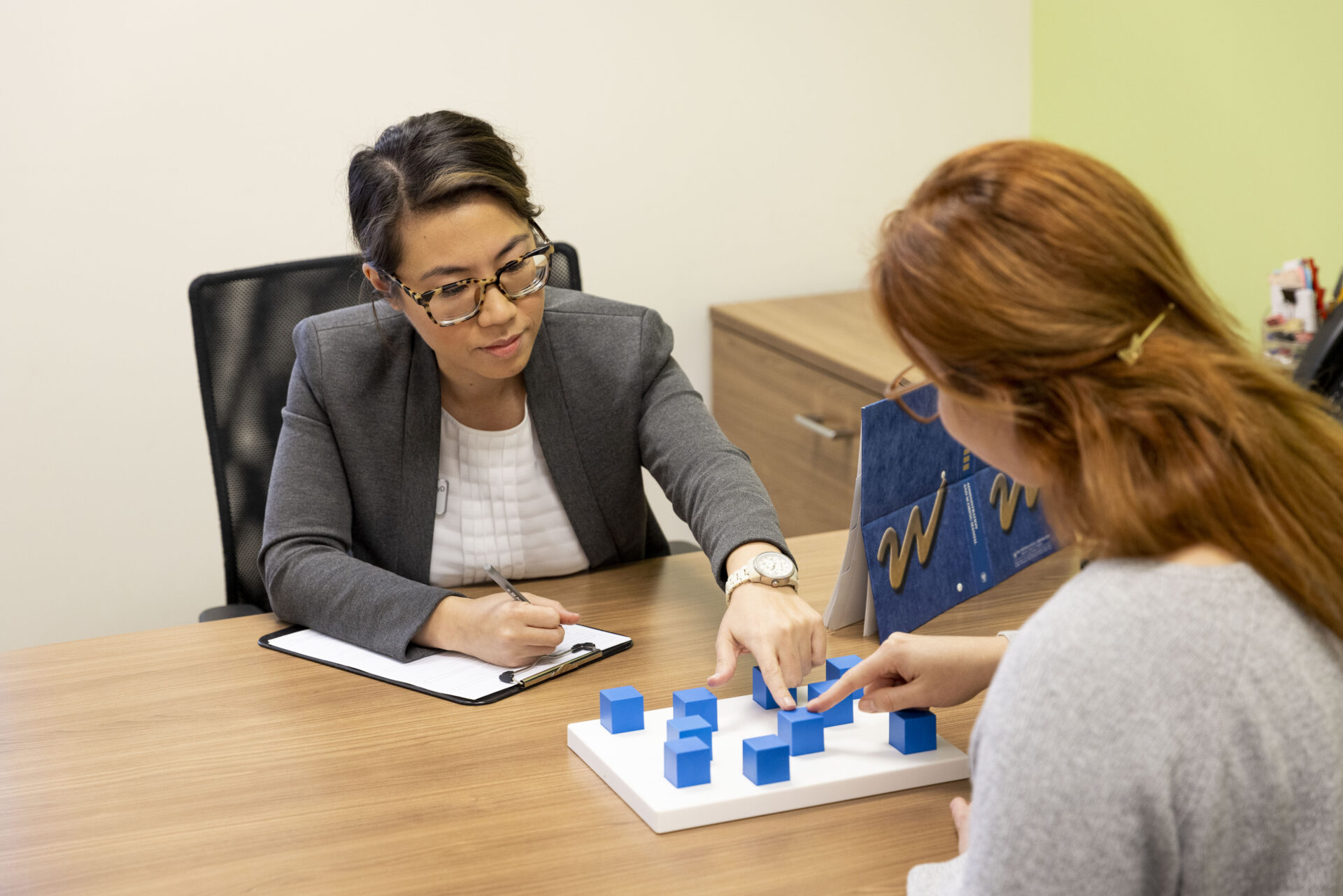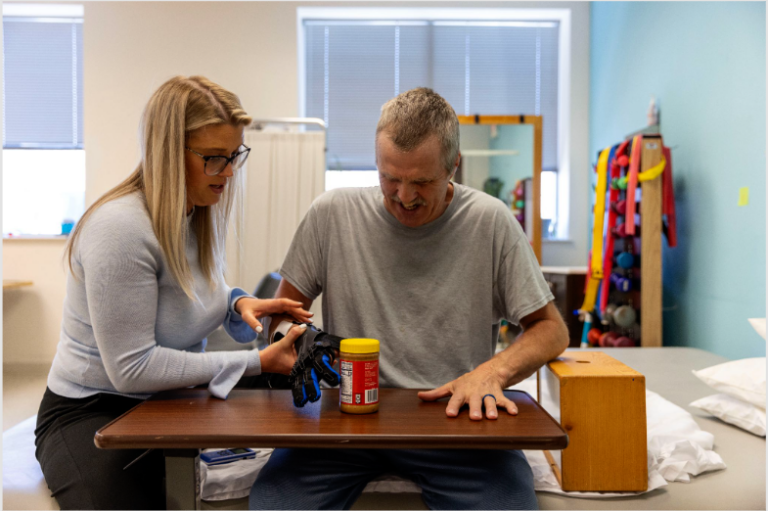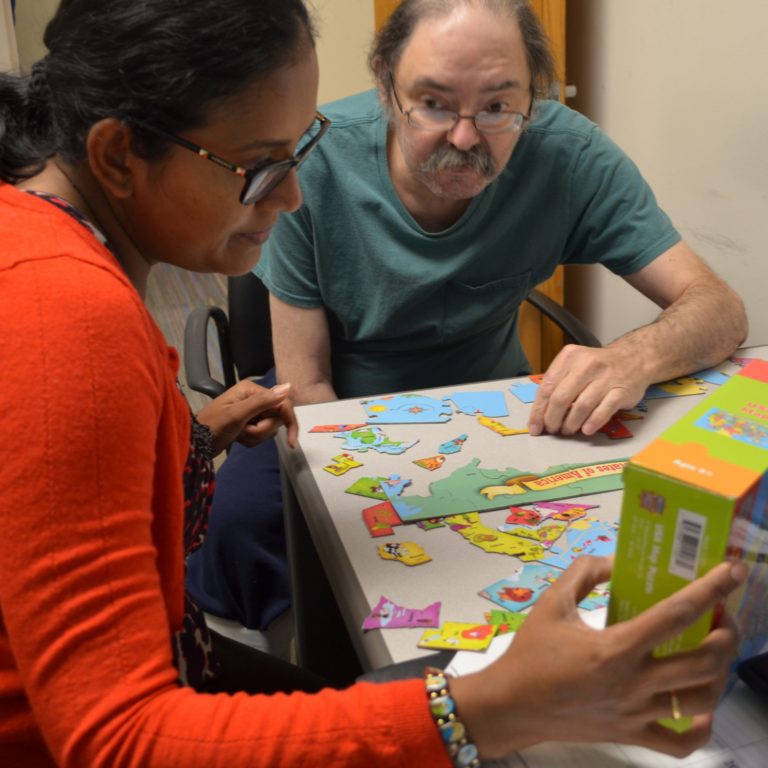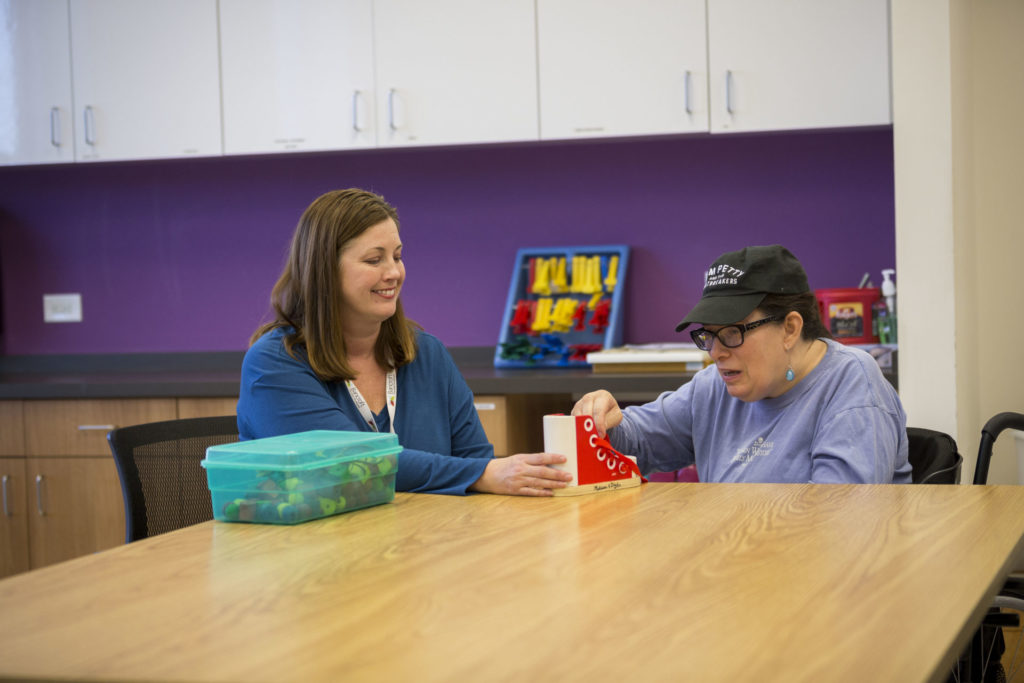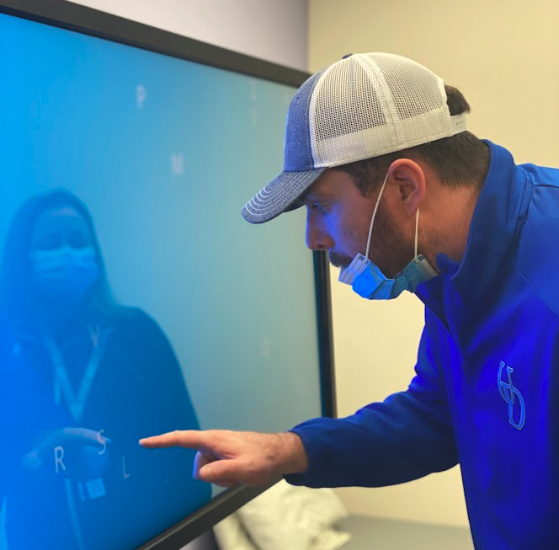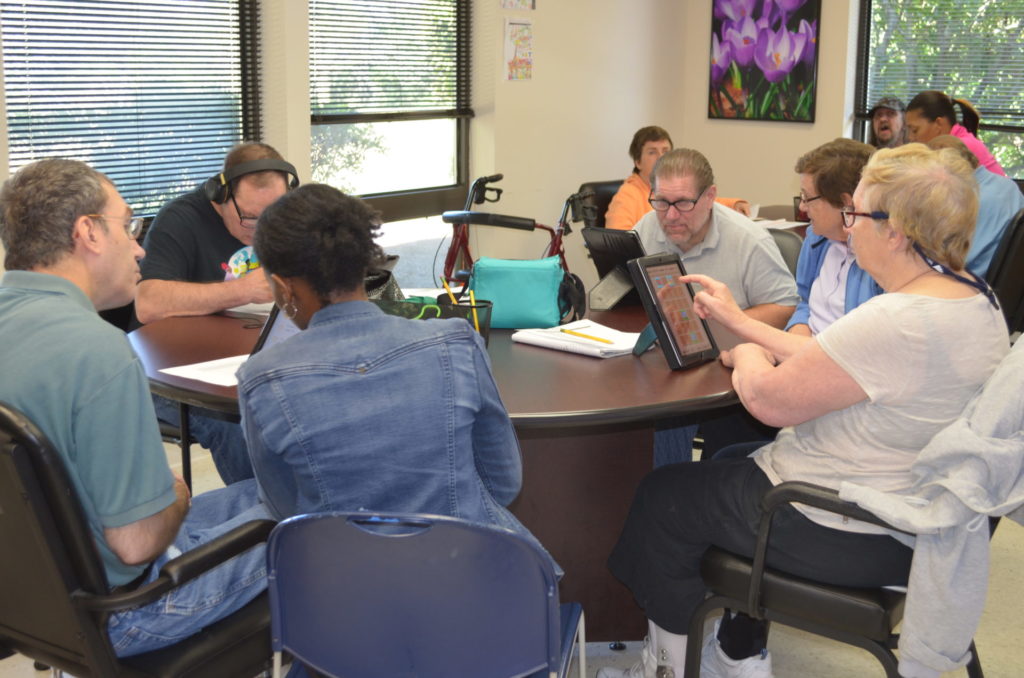Traumatic Brain Injury
Home » Conditions Treated » Traumatic Brain Injury
Overview
Traumatic brain injury (TBI) occurs when a hit or jolt to the head or body harms the brain. TBI can be mild, moderate or severe. A concussion is the mildest form and may only affect the brain temporarily. A more serious TBI can cause long-term challenges or death.
An estimated 1.5 million Americans suffer TBIs each year, and more than 5 million people currently live with a TBI-related disability in the United States.
Serious TBI requires emergency medical care. Once survivors leave the hospital, those with severe injuries usually need rehabilitation. Treatments and outcomes vary, depending on the severity of the injury and the person’s overall health, among other factors.
TBI can cause a wide range of changes that affect thinking, sensation, language, emotions, and physical abilities. But there is hope: Comprehensive, customized rehabilitation options enable survivors to overcome their challenges and reclaim their lives.
Contact Us
To make a referral or schedule an appointment call 844-234-8387
Common causes of TBI include:
- Vehicle-related collisions
- Falls, especially in and around the home
- Gunshots and other forms of violence
- Collisions, blows and falls during sports
- Military combat, including explosive blasts and shrapnel injuries
- Other penetrating wounds to the head
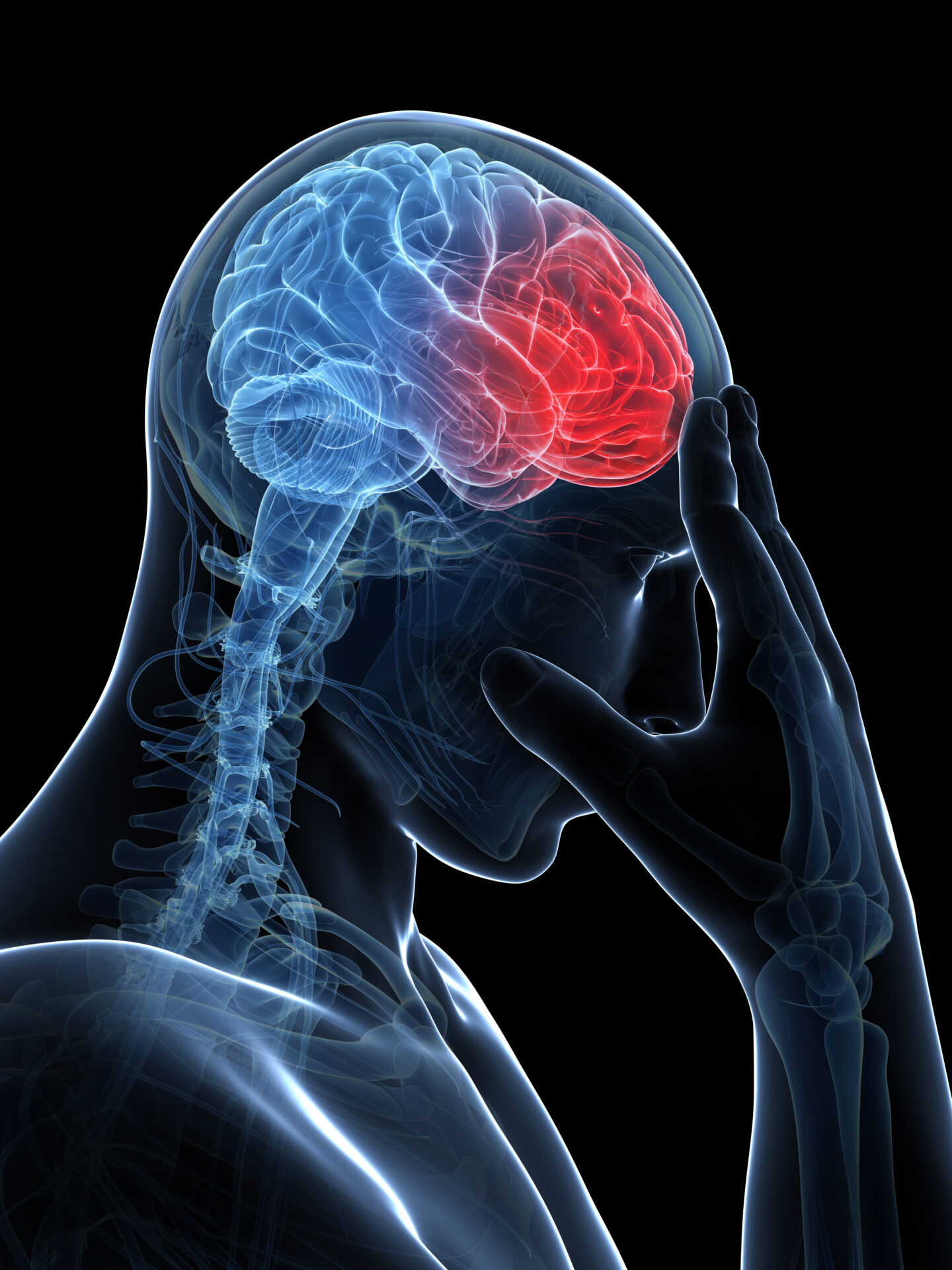

Symptoms
TBI can cause a variety of physical, mental and emotional effects. Some symptoms may occur right away, while others can appear several day or weeks after the injury.
Concussion – the mildest form of TBI – can cause the following symptoms:
- Headache or neck pain
- Brief loss of consciousness
- Feeling dazed or confused
- Nausea
- Ringing in the ears
- Dizziness
- Sleeping more or less than usual
- Behavioral or mood changes
- Tiredness
- Dilated eye pupil(s)
- Blurred vision or tired eyes
- Sensitivity to light or sound
- Ringing in the ears
- Bad taste in the mouth
- Trouble with memory, concentration or thinking
A moderate or severe TBI
can cause:
- Concussion symptoms (see above)
- Loss of consciousness for several minutes or more
- Clear fluids draining from the nose or ears
- Headache that gets worse or does not go away
- Repeated vomiting or nausea
- Convulsions or seizures
- Inability to awaken from sleep
- Slurred speech
- Weakness or numbness in the arms and legs
- Loss of coordination
- Severe or increased confusion
- Restlessness, agitation, combativeness or other unusual behavior
- Vision problems, including blurriness, vision loss, and reduced coordination of the two eyes.
When to See a Doctor
Seek emergency medical care if you notice any symptoms of TBI after a recent blow or jolt to the head or body. Even mild TBI symptoms require prompt medical attention to safeguard your health.
Complications
TBI can cause an array of challenges, depending on the severity and site of the injury, the person’s age, their overall health and other factors. TBI can affect a person’s thinking, memory, senses, language, emotions, and physical abilities. It can trigger post-traumatic stress disorder, depression, substance abuse, personality changes, aggression, and socially inappropriate behavior.
Physical complications of TBI can include frequent headaches, vertigo (dizziness), seizures, increased pressure/swelling in the brain, infections from wounds to the brain, and damaged blood vessels that can lead to stroke or other problems. The injury can cause paralysis, difficulty walking, or trouble controlling certain parts of the body.
A TBI at the base of the skull can cause facial paralysis or numbness, swallowing problems, and loss of vision, hearing, taste or smell.
About half of severe TBI survivors need surgery to remove or repair hematomas (ruptured blood vessels) or contusions (bruised brain tissue). A severe TBI may result in a state of unconsciousness, including a coma, unresponsive state, or vegetative state.
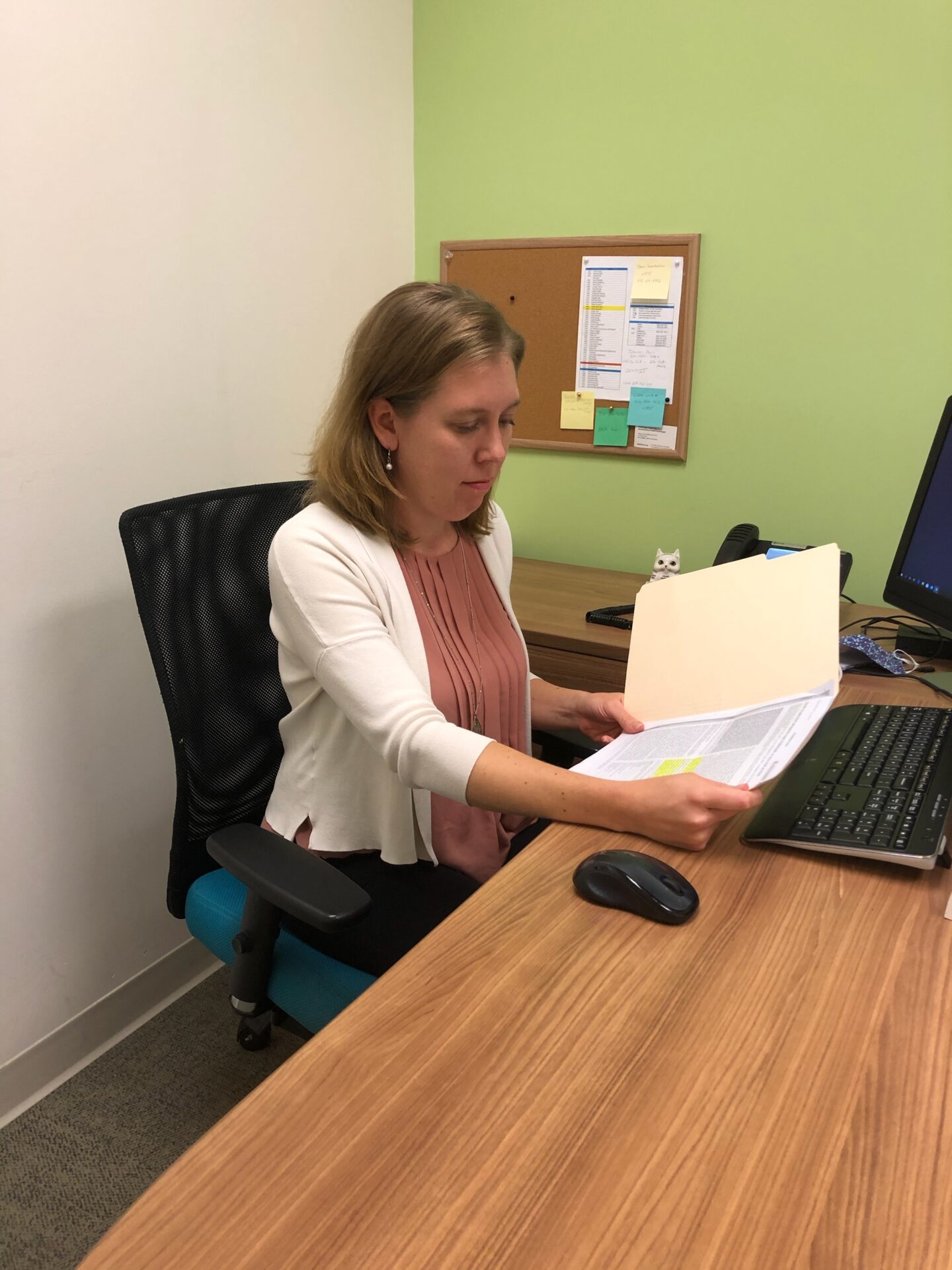

Evaluation
Medical professionals conduct a neurological examination and imaging tests to assess TBI. A blood test can evaluate mild TBI in adults.
In addition, people with mild to moderate TBI may receive skull and neck X-rays to check for bone fractures or spine problems. Those with moderate to severe TBI may receive a CT scan.
Depending on the person’s situation, other assessments may include:
- Neuropsychological evaluation, a comprehensive, non-invasive test of a person’s mental abilities and mood, including attention and concentration, learning and memory, planning and abstract thinking, language and communication, motor and sensory functions, academic skills, and other intellectual abilities. The test is done through a questionnaire and typically take four to six hours.
- Independent medical examination to determine the cause, extent and medical treatment of a work-related or other injury.
Treatment
Anyone with signs of moderate or severe TBI needs medical attention right away. Although the initial trauma cannot be reversed, medical professionals will work to stabilize the person and prevent further harm. They will focus on ensuring enough blood and oxygen flow to the brain and body, and take steps to control blood pressure.
People with moderate to severe TBI usually need rehabilitation, which involves therapies tailored to the individual’s specific needs, abilities and interests. Together, these services can help TBI survivors overcome challenges and rebuild their life:
Residential rehabilitation, which provides supervised living in the community, with staffing based on the person’s needs. Services can include behavioral programming, social supports, and support and training in daily living skills such as personal care, household management, health and medical care, grocery shopping, money management and budgeting.
Therapeutic day programs, including individual and group programs that engage in a variety of daily living, vocational, social and recreational activities, designedto help people regain abilities and improve their quality of life. Programs can address communication, thinking skills, back-to-work transition, behavioral issues, community participation, and need for supports or accommodations.
Physical therapy, which restores mobility and improves muscle tone, balance, strength and endurance.
Occupational therapy, which restores skills needed to function successfully at home, work or school.
Speech and language therapy, which improves communication skills and/or swallowing.
Physiatry, a form of physical medicine that helps patients overcome pain, weakness or disability, and enhances their independence and functioning.
Psychotherapy, which aids in adjustment to the TBI, awareness of deficits, redevelopment of social skills, maintaining of relationships, and education regarding the TBI.
Vestibular therapy, which improves balance and reduces dizziness through exercise.
Vocational rehabilitation, including restoration of job skills and assessment for return to work. Therapists works with both survivor and employer to support the survivor’s re-employment, including onsite job training and job coaching.



